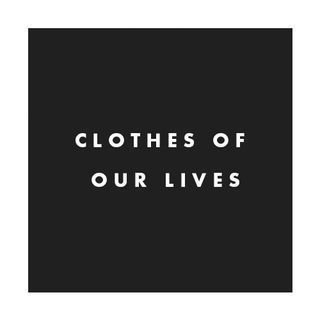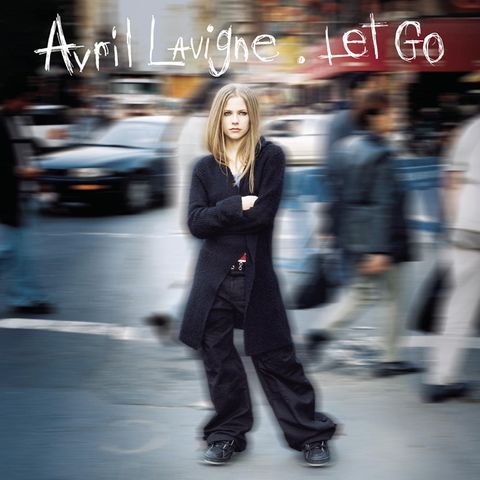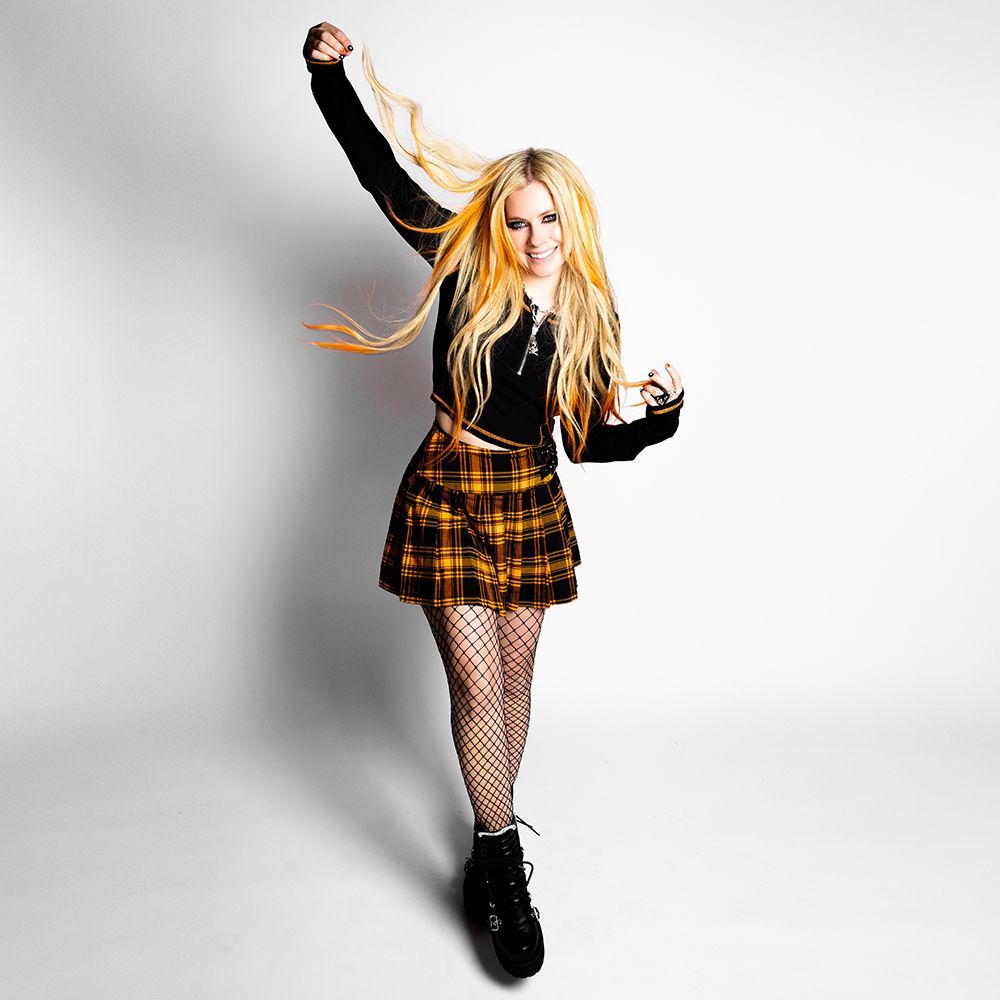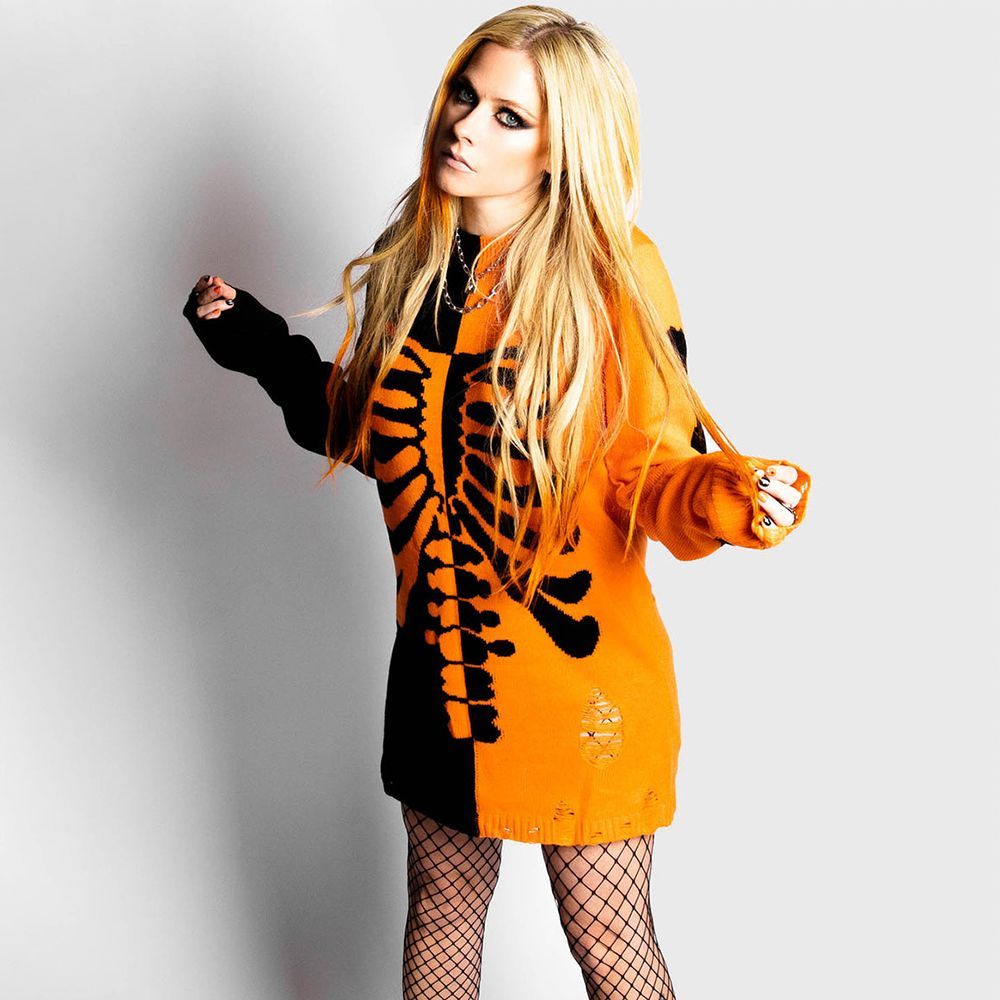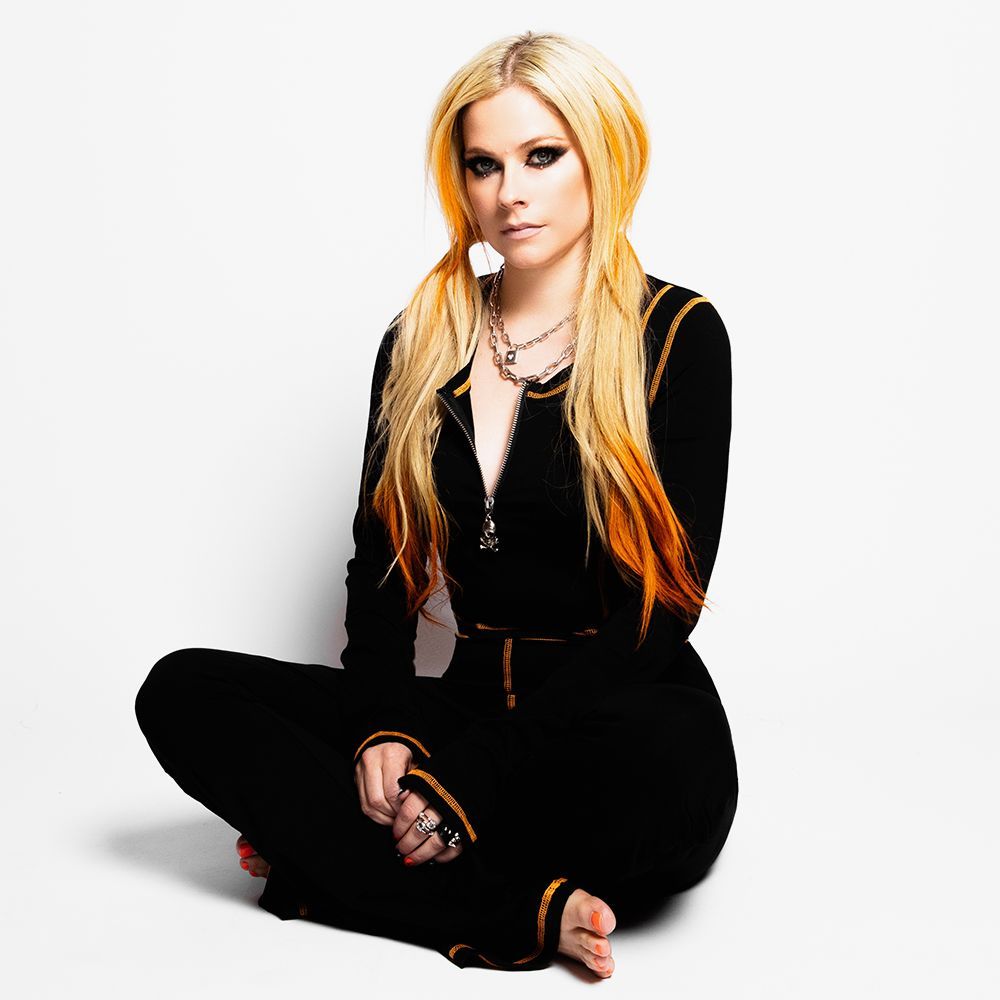It’s not complicated: Avril Lavigne remains one of fashion’s most revered style icons. The cover of her 2002 debut album Let Go kicked off a frenzy for goth couture that continues to influence today’s biggest stars, from Olivia Rodrigo to Willow Smith. The iconic image features Lavigne posing with her arms folded, with her hip angled slightly to the right amid the frenzied blur of Manhattan’s SoHo neighborhood. She’s wearing a fuzzy cardigan, cargo pants, and chunky skater shoes. All black everything, of course, to match her heavily lined eyes. The look was muted, but it spoke volumes: Flip through any mid-2000s yearbook and you’ll see Lavigne’s impact on a generation of angsty Y2K teens (hi, it’s me!) all across the country.
ELLE’s series Clothes of Our Lives decodes the sartorial choices made by powerful women, exploring how fashion can be used as a tool for communication. Below, in her own words, Lavigne, who debuted a new signature collection with UK-based fashion brand KILLSTAR, shares the story behind her most iconic look—one we haven’t stopped obsessing over two decades later.
Let Go started everything for me. It connected me with a fan base that has now followed me for 20 years. I wouldn’t change anything about it. The album cover was one of my first photoshoots. I was so excited, but also had no idea what to expect. We started early. Getting ready for the shoot was just me using what I had with me. We were originally shooting inside, but my gut told me to walk outside and explore what the city had to offer. I had recently moved to New York, and I loved walking around, so I knew there were a lot of things to play with on the street in terms of background.
At the time, I was traveling a lot and literally living out of a suitcase. The suitcase was so big, I could fit into it. So, everything I wore on the cover came from what I had with me. The black sweater was a gift from my co-writer, Lauren Christy. I saw her wearing it and I loved it so much that she got me the same one for my birthday. The shoes were those fat Osiris skate shoes. I wore them in high school and brought with me to New York when I left to make my album. The shirt, belt, and pants all were pieces I had that I threw together that morning.
My final look was so true to my style then—which is to say that I didn’t think much about my style. I liked a lot of skateboarding stores at the mall and was into baggy pants, big hoodies, and fat skate shoes. I was wearing what I would wear any other day and what felt natural to me. I just wanted to be comfortable and to feel like me. I didn’t follow trends, and the only place I shopped at were skate stores in Canada.
We really didn’t have a plan for where we were going to shoot that day. We were walking around New York and playing with the different backdrops. The spot on Canal Street just felt right. I didn’t have much time to take the picture, because we were shooting on an active street with people going about their everyday lives. I just struck a pose that felt comfortable to me in that moment.
It’s incredible how much the photo fits the whole vibe of the album. Looking through all the photo options at the end of the day, we all saw that one and knew it was the one. I will always have a deep love and connection to my debut album.
My style has changed since then. It now ranges from tomboy skate to rock glam—all mixed with pieces of high fashion. I still stay true to my skate style, and I like to wear what is comfortable. I love wearing oversized hoodies, Dr. Martens, plaid skirts, and corsets. For style inspiration, I have been looking to high fashion and designers like Vivienne Westwood and Versace.
This year, I launched a brand new collection in collaboration with KILLSTAR. I approached designing the collection knowing that I wanted it to tie in with my album Love Sux. I wanted to utilize an orange and black color scheme. There were specific pieces that I wanted to see, like plaid skater skirts. But instead of a classic punk red and black, I wanted to see it in orange and black. What is cool about this collection is that every piece is something I would wear onstage.
There is an incredible resurgence of artists paying tribute to pop-punk today. I love seeing this new generation take pop-punk and, not only make it their own, but also allow it to influence what they are doing. I am so excited about the direction the genre is heading. I love being a part of pop-punk’s past—and also a part of its future.
This interview has been edited and condensed for clarity.
Rose is a Senior Editor at ELLE overseeing features and projects about women’s issues. She is an accomplished and compassionate storyteller and editor who excels in obtaining exclusive interviews and unearthing compelling features.

